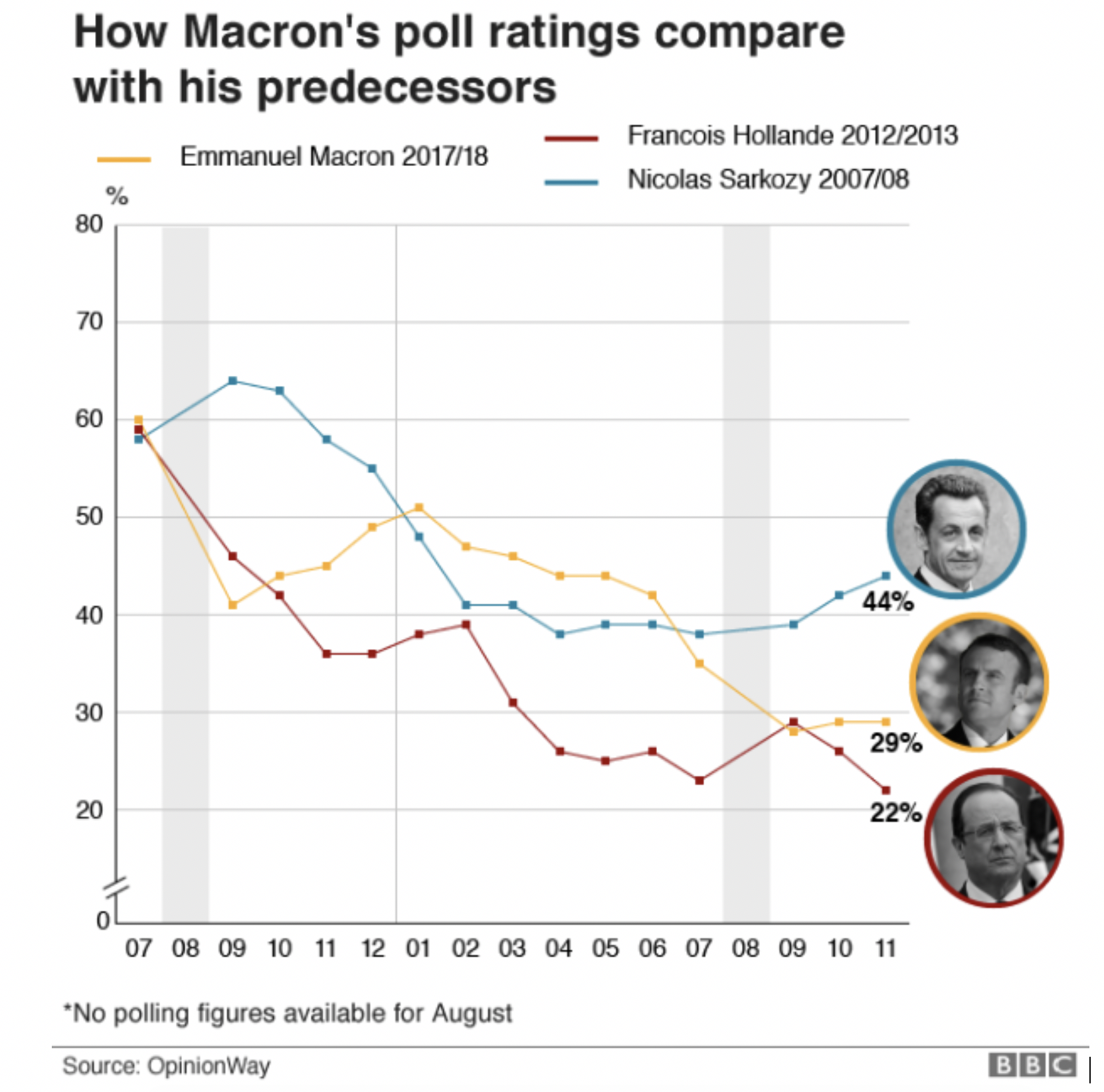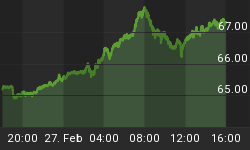With France teetering on the brink of a full-blown disaster threatening to destabilize one of the European Union’s leading democracies, French President Emmanuel Macron on Monday pledged to raise minimum wage next month and cut taxes for pensioners.
Macron hosted a crisis meeting with trade unions and employers’ organizations on Monday to try and defuse violent protests that have rocked Paris and other cities and challenged his authority.
“We will respond to the economic and social urgency with strong measures, by cutting taxes more rapidly, by keeping our spending under control, but not with U-turns,” Macron said in a TV address to the nation.
France has recorded four consecutive weekends of “yellow vest” protests against rising fuel taxes, the high cost of living and other issues. Diesel prices have climbed 23 percent over the past year with Macron’s January decision to impose additional taxes of 6.5 cents on diesel and 2.9 cents on petrol enraging protesters.
Macron blamed high world oil prices at the time but also pointed out that higher taxes on fossil fuels were necessary to fund investments in renewable energy. The rallies have been dubbed "yellow vest" or "gilets jaunes" movement because protesters take to the streets donning high-visibility yellow jackets required for every vehicle under French law.
Never one to miss a beat, President Trump has seized the opportunity to pin the blame for the protests on the Paris Climate Agreement, causing uproar amongst French politicians. The Trump administration announced the controversial withdrawal of the United States from the landmark agreement in June 2017, labeling global warming a “Chinese hoax” and the agreement a “scam for some countries to make lot money”.

(Click to enlarge)
Economic Crisis
The demonstrations have escalated into epic proportions, prompting finance Minister Bruno Le Maire to declare the situation an economic catastrophe and a crisis for both society and democracy. Saturday’s protests were particularly virulent with an estimated 136,000 protesters taking to the streets and burning 50 vehicles, smashing windows and vandalizing shops.
The French retail federation now estimates that retailers in the country have lost a staggering €1bn ($1.1bn; £900m) since the protests begun on November 17.
Yet, the total economic damages could get much worse. Related: This 7-Year Old Is Earning 8 Digits
Just last week, Le Maire reported that restaurant trade had declined by 20-50 percent and it is feared that the tourism sector could be adversely affected as well after last year’s record number of 40 million tourists visiting the country.
Meanwhile, Francois Asselin, head of the confederation of SMEs, figures that the protests could cost his members about €10 billion.
On Monday, the Bank of France cut its economic growth forecast for the final quarter of the year from 0.4 percent to 0.2 percent as a result of the protests.
The French government has already made some concessions after agreeing to scrap the fuel tax increases and also frozen electricity and gas prices, but Macron on Monday refused to reinstate a wealth tax.
Related: Can Crypto Outperform Equities In The Long-Term?
Protesters had come up with a laundry list of demands including higher wages, better pensions, lower taxes, and easier university entry requirements.
This has now devolved into a full-scale revolt against President Emmanuel Macron himself, including his perceived aloofness and reforms that favor the moneyed elites. Macron's ratings have plunged to an all-time low of 23 percent and now faces an uphill task trying to win back the trust of a people baying for his blood and demanding to “Hang the King”.

(Click to enlarge)
Source: BBC.com
The latest opinion poll showed a dip in support for the protests but still stood high at 66 percent.
Italy Latches On
Trump isn’t the only world leader using the French protests for political leverage. Italy’s deputy prime minister and interior minister Matteo Salvini is at it, too, defending the country’s expansionary budget saying that it will help prevent the kind of unrest in France from repeating itself there:
“There are several million forgotten Italians we are taking care of so that what has been happening in France doesn’t happen in Italy,” declared Salvini.
Italy has drafted an ambitious 2018/2019 budget that will see the heavily indebted country sink even deeper into debt and raise the budget deficit to 2.4 percent of GDP from last year’s 1.8 percent.
Italy wants to introduce a “citizens’ wage” to support the poor which, together with a reduction in the retirement age, will cost state coffers an additional 16 billion euros ($18.22 billion) every year. Brussels has refused to endorse the budget thus setting the stage for increased tension within the EU.
It’s quite remarkable that Italy has not recorded any significant social unrest in recent years despite the economic situation there being more dire than it is in France.
By Alex Kimani for Safehaven.com
More Top Reads From Safehaven.com
















